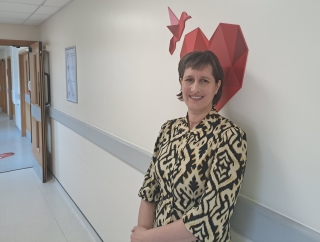Thursday,7 March, 2024
As International Women’s Day approaches this Friday, 8 March, consultant cardiologist at Frimley Health, Lydia Sturridge, is spotlighting a crucial area where female involvement is not just wanted but needed.
“In 2024, it’s critical that our research studies mirror the diverse tapestry of the UK population. Unfortunately, women are significantly underrepresented, which is a gap we must fill,” she said. 
Women’s health issues, especially in cardiology, have historically been overshadowed, despite women being equally at risk. For example, conditions like pre-eclampsia cause high blood pressure during pregnancy, and breast cancer treatments may increase cardiac risks.
Post-menopausal women face a heightened risk of stress cardiomyopathy, a condition affecting the heart muscle. “Menopause sees a reduction of oestrogen and significant cardiovascular changes, underscoring the need for more targeted research,” said Lydia.
Understanding how women respond differently to medications and treatments can evolve and improve medical guidelines, ensuring more effective management of conditions like hypertension. Research has shown the necessity for distinct treatment approaches for women, especially those who are pregnant, breastfeeding, or planning a pregnancy.
However, Lydia notes a challenge: “Many women are keen on contributing to research but often feel they lack the time due to their caregiving roles. We must innovate to make participation more accessible, perhaps through flexible scheduling or improved transportation options. We need to go the extra mile to make participation easier for them. Understanding the barriers women face is the first step towards crafting solutions that encourage their involvement.”
Lydia is the principal investigator for the BRITISH trial at Frimley Health, which focuses on identifying patients who could benefit from an implantable cardioverter defibrillator (ICD) to prevent abnormal heart rhythms and potential cardiac arrest.
“This trial may well be pivotal in a major change to national and international guidelines,” she said. “So far, I am very pleased that patients recruited and invited to the BRITISH trial from Frimley Health are strongly representing our ethnically diverse population. Sadly, no women yet have been recruited, but as a woman in Cardiology, I will work hard to change this. We clearly need more women in cardiology and more women in cardiac trials.”
For more information about the research going on at Frimley Health and how to get involved, visit Research & Innovation | NHS Frimley Health Foundation Trust (fhft.nhs.uk)

